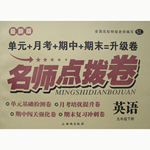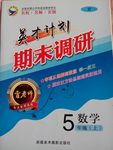题目内容
2.The other day I was talking to a stranger on the bus; he told me that he had a good (11)friendin Chicago and he wondered if,by any chance,I (12)happenedto know him.For a moment,I thought he might be(13)joking,but I could tell from the expression on his face that he was not.He was(14)serious.I felt like saying that it was ridiculous to (15)thinkthat out of all the millions of people in Chicago I could possibly have ever bumped(碰到) into his friend.But,(16)instead,I just smiled and reminded him that Chicago was a very (17)bigcity.He nodded,and I thought he was going to be content to drop the subject and talk about something else.But I was wrong.He was silent for a few minutes,and then he (18)beganto tell me all about his friend.His friend's main(19)interestin life seemed to be tennis.He was an excellent tennis player,and he(20)evenhad his own tennis court(网球场).There were a lot of people with swimming (21)pools,but there were only two people with private tennis court; his friend in Chicago was one of them.I told him that I knew several(22)playerslike that,including my brother,who was doctor in California.He(23)admittedthat maybe there were more private courts in the country,than he(24)realizedbut he did not know of any others.Then he asked me(25)wheremy brother lived in California.When I said Sacramento,he said that was a coincidence (巧合)(26)becausehis Chicago friend spent the summer in Sacramento last year and he lived next door to a (27)doctorwho had a tennis court in his backyard.I said I felt that really was a coincidence because my next-door neighbor had gone to Sacramento last summer and had (28)hiredthe house next to my brother's house.For a moment,we stared at each other,but we did not say anything.
"Would your friend's name happen to be Roland Kirkwood?"I asked finally.He(29)laughedand said,"Yes.Would your brother's name happen to be Dr Rey Hunter?"It was my(30)turnto laugh."Yes."I replied.
| 11.A.brother | B.teacher | C.neighbor | D.friend |
| 12.A.managed | B.happened | C.tried | D.wanted |
| 13.A.expecting | B.lying | C.joking | D.talking |
| 14.A.funny | B.serious | C.careful | D.disappointed |
| 15.A.think | B.find | C.realize | D.see |
| 16.A.indeed | B.actually | C.instead | D.exactly |
| 17.A.famous | B.interesting | C.noisy | D.big |
| 18.A.began | B.stopped | C.refused | D.failed |
| 19.A.problem | B.interest | C.choice | D.chance |
| 20.A.just | B.ever | C.even | D.surely |
| 21.A.suit | B.habit | C.pools | D.river |
| 22.A.people | B.players | C.strangers | D.friends |
| 23.A.advised | B.argued | C.admitted | D.admired |
| 24.A.recognized | B.realized | C.visited | D.found |
| 25.A.how | B.whether | C.when | D.where |
| 26.A.because | B.if | C.then | D.though |
| 27.A.doctor | B.friend | C.neighbor | D.player |
| 28.A.hired | B.visited | C.designed | D.sold |
| 29.A.smiled | B.laughed | C.cried | D.nodded |
| 30.A.chance | B.pleasure | C.time | D.turn |
分析 作者在公共汽车上碰到了一位善谈的陌生人,陌生人提到自己的朋友,想知道作者是否碰巧认识,本来作者对此感到可笑,但是真的很巧,作者竟然认识陌生人的朋友.
解答 11.D 考查名词辨析 根据下文的"Chicago I could possibly have ever bumped into his friend."可知,陌生人向作者谈起他的好朋友,想知道作者是不是碰巧认识他的好朋友,故选D.
12.B 考查动词辨析 根据语境可知,陌生人向作者谈起他的好朋友,想知道作者是不是碰巧认识他的好朋友."happen to do sth,碰巧做…",故选B.
13.C 考查动词辨析 根据后面的句子"but I could tell from the expression on his face that he was not"可知,作者开始觉得他这样说可能是在开玩笑,故选C.
14.B 考查形容词辨析 根据前面的句子"but I could tell from the expression on his face that he was not"可知,作者从陌生人脸上的表情看出他不是在开玩笑,他是认真的,故选B.
15.A 考查动词辨析 根据语境可知,作者认为想在成百上万的芝加哥人中能碰见过他朋友都是可笑的.故选A.
16.A 考查副词辨析 由前句可知,作者想说陌生人可笑,but表转折,且由空后的"I just smiled and reminded him…"推断,作者并没有说出自己的想法,相反,作者微笑着提醒陌生人芝加哥是个很大的城市,故选A.
17.D 考查形容词辨析 根据语境可知,芝加哥是个很大的城市,故选D.
18.A 考查动词辨析 根据前面的句子"He was silent for a few minutes"可知,他开始谈论他的朋友,故选A.
19.B 考查名词辨析 由下文"He was an excellent tennis player,and he even had his own tennis court"可知,陌生人的朋友是个网球手,甚至有自己的网球场,所以说他朋友的主要兴趣在网球,故选B.
20.C 考查副词辨析 根据后面的句子"yet therewere only two people with private tennis court"可知,拥有网球场的人并不多,所以是甚至有网球场,故选C.21.C 考查名词辨析 根据语境可知,有很多人拥有游泳池,但是只有两个人拥有网球场,故选C.
22 B 考查名词辨析 从后面的句子"including my brother,who was a doctor in California"可知,作者认识这样的人,故选B.
23 C 考查动词辨析 根据语境可知,陌生人承认在这个国家可能有更多的私人网球场."admit承认",故选C.24 B 考查动词辨析 根据语境可知,有比他知道的更多的私人网球场."realize 知道,了解",故选B.
25.D 考查疑问词辨析 从后面的句子"When I said Sacramento"可知,陌生人是问他弟弟住在什么地方,故选D.
26 A 考查连词辨析 前面说这是巧合,因为陌生人的朋友也住在Sacramento,故选A.
27.A 考查名词辨析 从前面的句子"including my brother,who was a doctor in California"可知,作者的哥哥是医生,故选A.
28.A 考查动词辨析 由空前后信息可知,作者的邻居去年夏天去了Sacramento并且租用了作者哥哥隔壁的房子,"hire 租用",故选A.
29.B 考查动词辨析 根据后面的句子"It was my 55 to laugh"可知,听到作者的问话,陌生人大笑起来,故选B.
30.D 考查名词辨析 根据语境可知,轮到作者大笑,"It's one's turn to do sth 轮到某人做某事",故选D.
点评 解答此类题目可遵循以下步骤:第一步,通读全文,了解文章大意,获得整体印象,同时初选出一批较有把握的答案.第二步,边核对初选答案边补填留下的空格.如果短文难度较大,则可复读几遍,核对和确定答案.有些空一时决定不了,可作个记号,待复查时再确定. 第三步,复查定稿.从整体理解角度出发,仔细审核答案,确保意义上、语法上没有错误,同时对遗留下来的少数几个空格作最后选择.

 名师点拨卷系列答案
名师点拨卷系列答案 英才计划期末调研系列答案
英才计划期末调研系列答案-No,I'm afraid not.I John then.( )
| A. | am meeting | B. | met | C. | have met | D. | was meeting |
| A. | the royal couple were aware | B. | were the royal couple aware | ||
| C. | were aware the royal couple | D. | the royal couple aware were |
| A. | why | B. | if | C. | whether | D. | that |
| A. | which | B. | them | C. | that | D. | whom |
| A. | after which | B. | after when | C. | after that | D. | after it |
News of the first kind pays its rewards at once.A reader can enjoy an indirect experiencewithout any of the dangers or stresses involved.He can tremble wildly at an axe-murder,shake hishead sympathetically and safely at a hurricane,identify himself with the winning team,laugh understandingly at a warm little story of children or dogs.News of the second kind,however,pays its rewards later.It sometimes requires the reader totolerate unpleasantness or annoyance-as,for example,when he reads of the threatening foreign situation,the mounting national debt,rising taxes,falling market,scarce housing,and cancer.It has a kind of"threat value."It is read so that the reader may be informed and prepared.When a reader selects delayed reward news,he pulls himself into the world of surrounding reality to which he can adapt himself only by hard work.When he selects news of the other kind,he usually withdraws from the world of threatening reality toward the dream world.
For any individual,of course,the boundaries of these two classes are not stable.For example,asociologist may read news of crime as a social problem,rather than for its immediate reward.Acoach may read a sports story for its threat value:he may have to play that team next week.Apolitician may read an account of his latest successful public meeting,not for its delayed reward,but very much as his wife reads an account of a party.In any given story of corruption or disaster,a thoughtful reader may receive not only the immediate reward of indirect experience,but also the delayed reward of information and preparedness.Therefore,while the division of categories holds in general,an individual's tendency may transfer any story from one kind of reading to another,ordivide the experience between the two kinds of reward.
| What news stories do you read? | |
| Division of news stories | •People expect to get (71)rewards/rewardedfrom reading news. •News stories are roughly divided into two classes. •Some news will excite their readers instantly while others won't. |
| (72)Explanationsof the two classes | •News of immediate reward will seemingly take their readers to the very frightening scene without actual (73)involvement. •Readers will associate themselves closely with what happens in the news stories and (74)sharesimilar feelings with those involved. |
| •News of delayed reward will make readers suffer,or present a(75)threatto them. •News of delayed reward will induce the reader to (76)preparefor the reality while news of immediate reward will lead the reader to (77)withdraw from the reality. | |
| Unstable boundaries of the two classes | What readers expect from news stories are largely shaped by their (78)profession(s)/intention. Serious readers will both get excited over what happens in some news stories and (79)adapt themselves to the reality. Thus,the division,on the whole,(80)dependson the reader. |